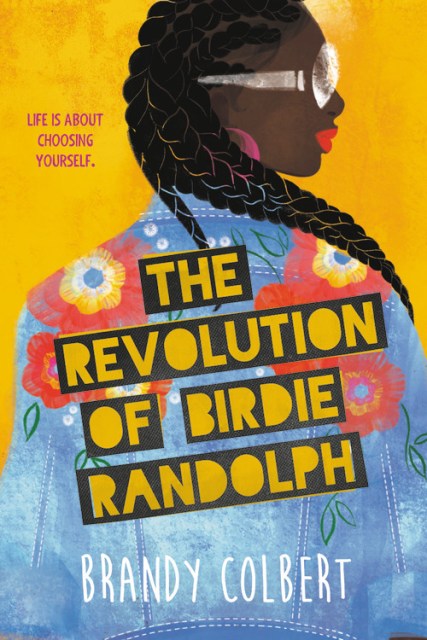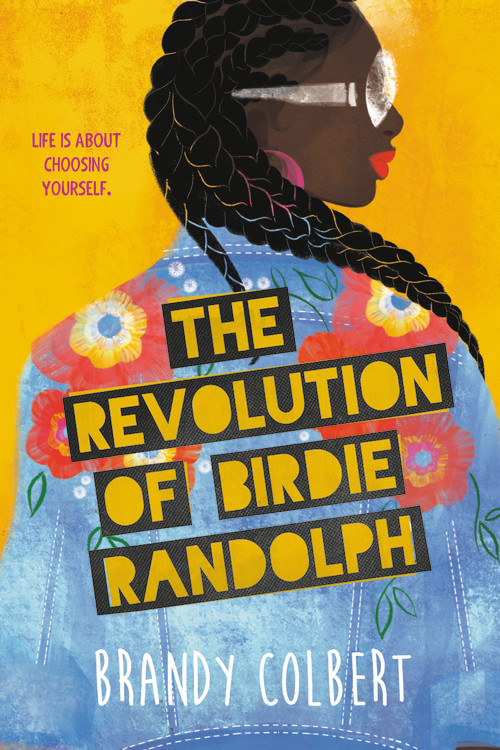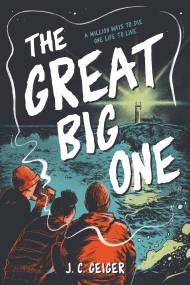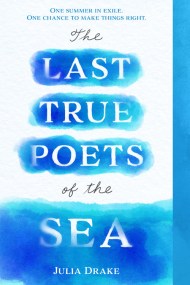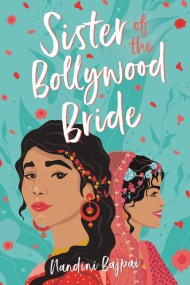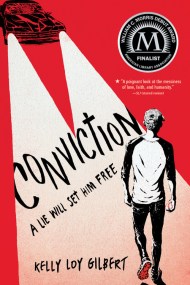Promotion
Use code MOM24 for 20% off site wide + free shipping over $45
The Revolution of Birdie Randolph
Contributors
Formats and Prices
Price
$10.99Price
$14.99 CADFormat
Format:
- Trade Paperback $10.99 $14.99 CAD
- ebook $9.99 $12.99 CAD
- Hardcover $17.99 $23.49 CAD
- Audiobook Download (Unabridged)
This item is a preorder. Your payment method will be charged immediately, and the product is expected to ship on or around August 18, 2020. This date is subject to change due to shipping delays beyond our control.
Also available from:
From Stonewall Award winner Brandy Colbert comes a novel about first love, family, and hidden secrets that will stay with you long after turning the last page.
Dove "Birdie" Randolph works hard to be the perfect daughter and follow the path her parents have laid out for her: She quit playing her beloved soccer, she keeps her nose buried in textbooks, and she's on track to finish high school at the top of her class. But then Birdie falls hard for Booker, a sweet boy with a troubled past… whom she knows her parents will never approve of.
When her estranged aunt Carlene returns to Chicago and moves into the family's apartment above their hair salon, Birdie notices the tension building at home. Carlene is sweet, friendly, and open-minded — she's also spent decades in and out of treatment facilities for addiction. As Birdie becomes closer to both Booker and Carlene, she yearns to spread her wings. But when long-buried secrets rise to the surface, everything she's known to be true is turned upside down.
Genre:
-
Praise for The Revolution of Birdie Randolph:Booklist, starred review
A Chicago Public Library Best Teen Fiction of 2019 PickAn ALA Best Fiction for Young Adults PickAn ALA Quick Picks for Reluctant Young Adult Readers Pick
*"Colbert's latest novel brilliantly delves into first loves, forbidden romance, rebellion, and family expectations-all of which teens will strongly relate to." -
*"The Revolution of Birdie Randolph crescendos with an unexpected, masterful plot twist and an extremely satisfying ending."Shelf Awareness, starred review
-
*"...this thrilling tale of first love explores what it means to be held to an impossible standard and still learn to live an authentic life."Publisher's Weekly, starred review
-
"A beautiful and necessary read."Buzzfeed
-
"...the book may actually help struggling teens realize that they are not alone in whatever hardships they may face."School Library Connection
-
"A great addition to teen collections everywhere."School Library Journal
-
"...an emotionally gripping tale about family and young love and how they can be your entire world while still being worlds apart."Kirkus
-
"There are few authors in contemporary YA today who write with Colbert's quiet power and nuance, and her fourth novel is a perfect example."Barnes & Noble Teen Blog
-
"..touching and uplifting."Entertainment Weekly
-
"A beautiful and necessary read."Buzzfeed
-
Praise for Finding Yvonne: "Brandy Colbert has crafted a meaningful and masterful book that explores all of the different ways that we can surprise ourselves. Yvonne's path through family ties, hidden talents, and difficult decisions reveals the hard-won truth of an unforgettable character. I loved this book."p.p1 {margin: 0.0px 0.0px 0.0px 0.0px; font: 13.0px Times}Robin Benway, National Book Award Winner and New York Times bestselling author of Far from the Tree
-
"...thoughtful coming-of-age story..."VOYA
-
"A pitch-perfect song of a book about all the ways a heart can break and mend, Finding Yvonne will stay with you long past its final, bittersweet notes."p.p1 {margin: 0.0px 0.0px 0.0px 0.0px; font: 13.0px Times}Elana K. Arnold, author of National Book Award finalist What Girls Are Made Of
-
Praise for Little & Lion:"Little and Lion is beautifully insightful, honest, and compassionate. Brandy's ability to find larger meaning in small moments is nothing short of dazzling."National Book Award Finalist and #1 New York Times bestselling author of Everything Everything, Nicola Yoon
-
"Brandy Colbert further establishes herself as one of contemporary YA's biggest talents in this thoughtful and thought-provoking examination of identity, loyalty, and what it means to live with integrity. Little & Lion is a stunningly good novel."Kiersten White, New York Times bestselling author of And I Darken
-
"Brandy Colbert takes us on an emotional and gorgeous journey with a protagonist who is trying to figure out where she fits in with her family as well as in the world. A book full of overwhelming love and courage."Sara Farizan, author of Tell Me Again How a Crush Should Feel
-
* "This superbly written novel teems with meaningful depth, which is perfectly balanced by romance and the languorous freedom of summer."Booklist, starred review
-
* "A moving, diverse exploration of the challenges of growing up and the complicated nature of loyalty."School Library Journal, starred review
-
* "Colbert sensitively confronts misconceptions about mental illness, bisexuality, and intersectional identity.... A vibrantly depicted Los Angeles."Kirkus Reviews, starred review
-
* "From the threads of love and romance, to redefining family life, readers of all walks of life will find an entry point to this title."Bulletin of the Center for Children's Books, starred review
-
"A moving and well-realized examination of secrecy, trust, and intimacy."Publishers Weekly
-
" Hand [Little & Lion] to readers who like thoughtful, edgy stories with no easy answers."VOYA
-
"With compelling honesty, Colbert portrays Suzette's evolving understanding of her sexuality, Lionel's longing for self-sufficiency alongside the challenges of his mental illness, and the difficulty of shifting familial relationships."Horn Book
- On Sale
- Aug 18, 2020
- Page Count
- 352 pages
- Publisher
- Little, Brown Books for Young Readers
- ISBN-13
- 9780316448543
Newsletter Signup
By clicking ‘Sign Up,’ I acknowledge that I have read and agree to Hachette Book Group’s Privacy Policy and Terms of Use
